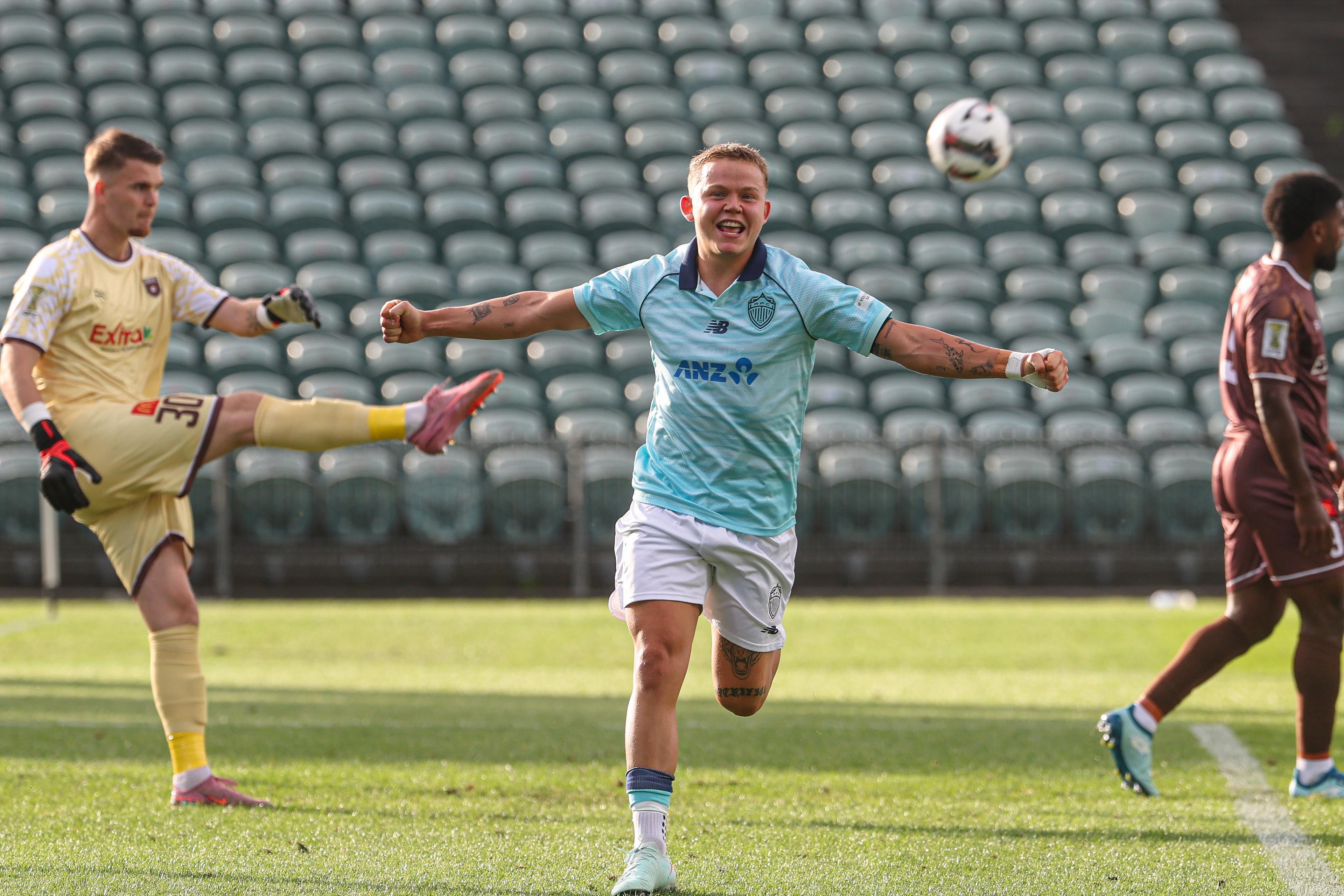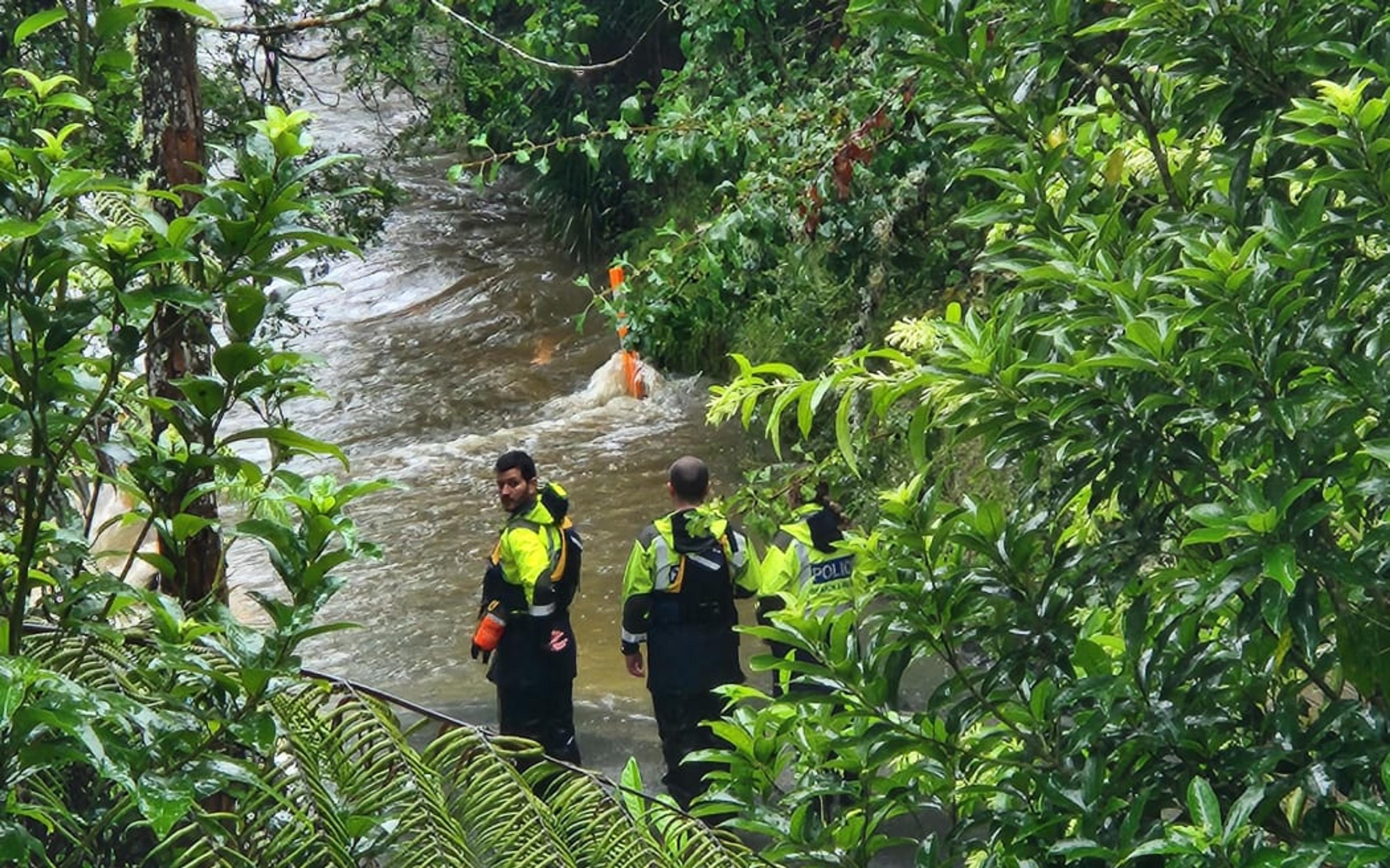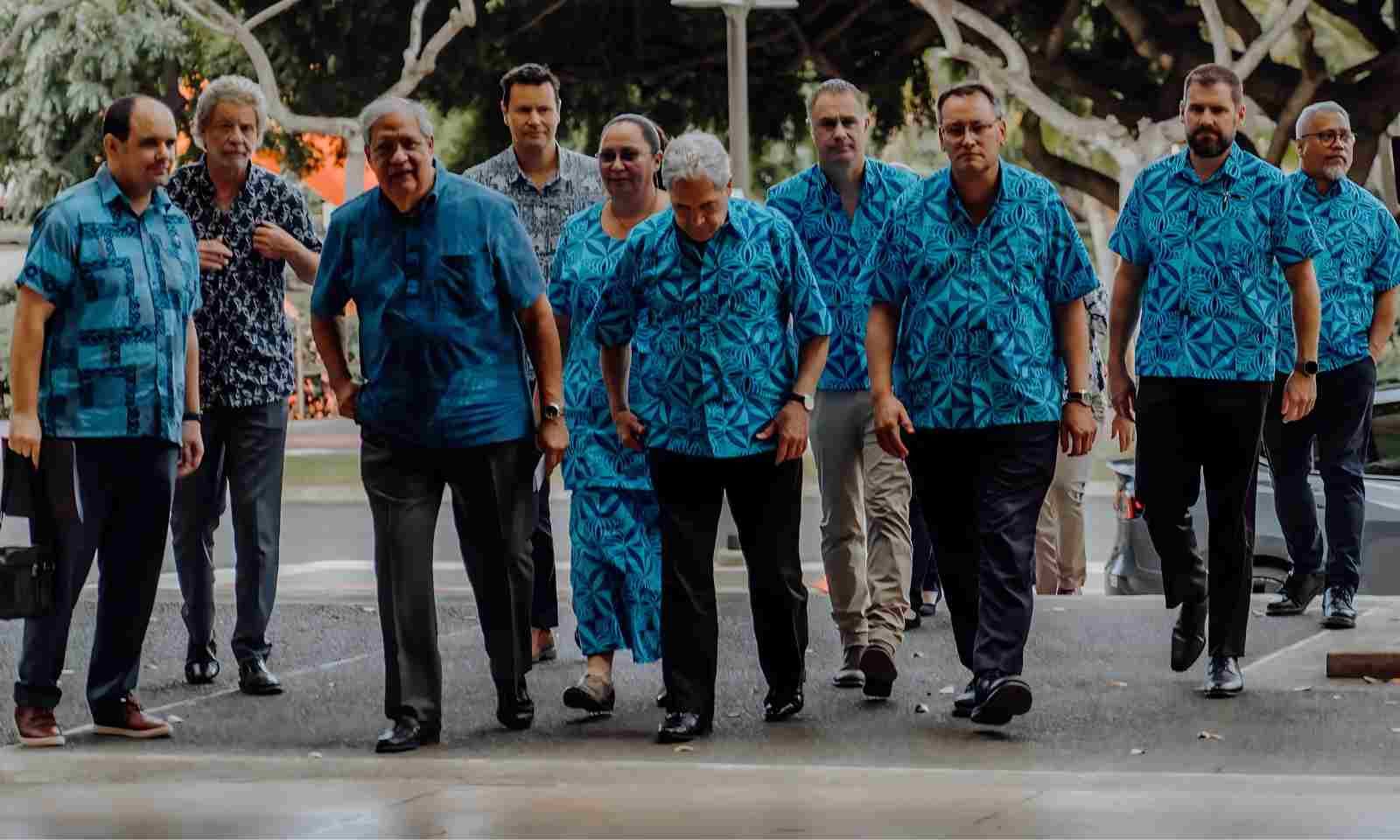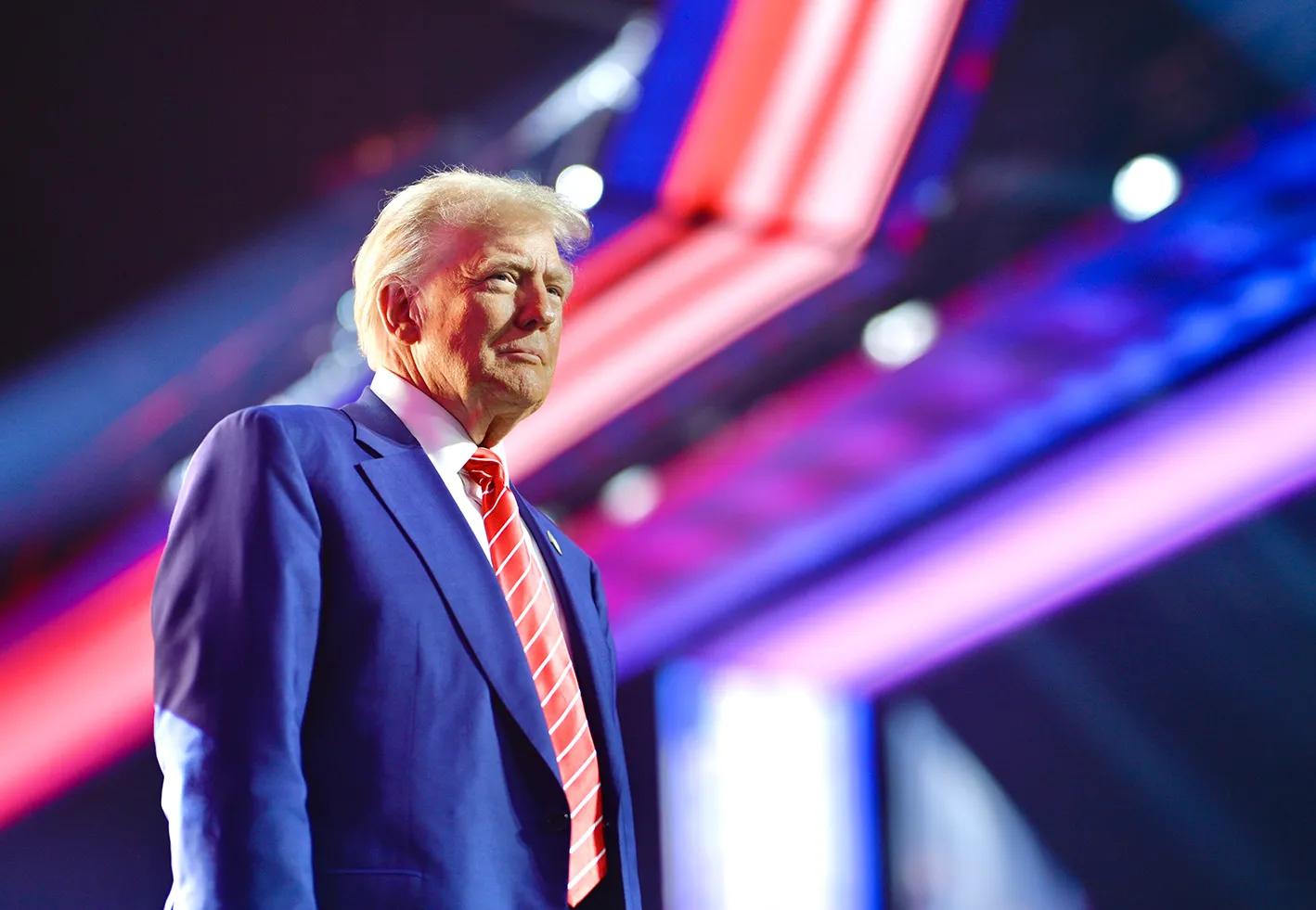

From left: Jean Lee, presidential chair of the East-West Center, US Secretary of Defence Pete Hegseth, and US Secretary of National Intelligence Tulsi Gabbard.
Photo/East-West Center/Mike Pesoli/Office of the US Director of National Intelligence
'America First does not mean America alone': Officials assure Pacific of US commitment
While Washington is optimistic about strengthening its Indo-Pacific relationship amid a global fallout over trade and aid, Defence Secretary Pete Hegseth is focussed on China deterrence and war fighting.



Kiribati man, Tauranga grandma and child among those missing or dead after NZ storms

NZ moves to reset Pacific ties as Peters wraps up regional tour

Fiji and Tahiti seize tonnes of cocaine in coordinated Pacific drug busts - officials



Kiribati man, Tauranga grandma and child among those missing or dead after NZ storms

NZ moves to reset Pacific ties as Peters wraps up regional tour

Fiji and Tahiti seize tonnes of cocaine in coordinated Pacific drug busts - officials
The United States is not going anywhere and stands united with its Pacific allies in addressing threats to the region, especially from China.
That was a key message Jean Lee, the presidential chair of the US-funded East-West Center in Hawaii, sought to convey in an exclusive interview with 'Alakihihifo Vailala, PMN's political reporter.
Lee earlier met with New Zealand's Deputy Prime Minister and Foreign Minister, Vaovasamanaia Winston Peters in Honolulu. Peters also met with Hawaii's Governor Josh Green and other senior officials, including the military.
Peters has been on a three-nation Pacific tour since last Thursday. He and his cross-party delegation visited Tonga and head to Vanuatu on Wednesday.
Lee's comments come amid criticism of President Donald Trump's 'America First' policy. Concerns have been raised about Trump’s history of withdrawing from international agreements related to free trade, climate change, and foreign aid, raising questions about the future of US security treaties.
Many US officials, including Defence Secretary Pete Hegseth, who visited the Indo-Pacific region last month, have discussed the implications of the 'America First' mantra.
During his trip to Manila and Tokyo, Hegseth emphasised that the alliances are “iron-clad” and are the “cornerstone of peace and security”.
According to him, the Philippines and Japan are vital partners “in deterring military aggression from Communist China”.
"We don’t speak the same language, but we understand what the threats are, what camaraderie means, what brotherhood means as we stand shoulder to shoulder," Hegseth told his Japanese counterpart, Gen Nakatani, in Tokyo.

Winston Peters and his cross-party delegation visited Hawaii earlier this week. Photo/PMN Digital/Joseph Safiti
Two days earlier, in Manila, Hegseth told his Filipino counterpart, Gilberto Teodoro Jr., that the US would fully restore its US$500 million (NZ$846.15m) military aid package to the Philippines.
But doubts about the reliability of the US as a security guarantor have emerged as Washington pressures its allies in the region to increase their own defence spending after decades of relying on the US security umbrella.
"It's important that he [Hegseth] made this trip," Lee told Vailala. "Of course, we were watching very closely to see what the messaging would be. And there were a couple of catchphrases.
"America first is not America alone. Now, that is not a new phrase. It's something that we saw during the first Trump administration as well.
"But I think that that message repeated throughout his trip across the region was meant to reassure allies because we are seeing an America right now that is very America first."

US President Donald Trump. Photo/The White House
Lee says that 'America first does not mean America alone' and is meant to reassure US allies. "Let the allies know that the relationships are still important. But we needed to see something beyond that."
She says there were "concrete" discussions in Manila, particularly in Tokyo, "about ways they would strengthen those relationships.
"In the Philippines, we saw some discussion about improving cooperation that would help enhance the arsenal. Secretary Hegseth is very focussed on what he calls war-fighting.
"He spoke quite a bit about the warrior ethos. It's very clear that deterrence is going to be a very important component of his strategy. It was interesting to see the follow-up discussions on what that might look like," Lee says.
Trump's director of national intelligence, Tulsi Gabbard, who has Sāmoan heritage, reiterates that while President Trump is committed to the America First policy, "This should not be misunderstood to mean that 'America First is America alone'."

US director of national intelligence Tulsi Gabbard and Indian Prime Minister Narendra Modi. Photo/X@narendramodi
Delivering her keynote address at the 10th Raisina Dialogue, India's premier multilateral conference in New Delhi last month - which New Zealand Prime Minister Christopher Luxon also attended - Gabbard says, "President Trump is committed to America first, putting the safety, security, and freedom of the American people at the forefront of his policies and his decisions.
"President Trump is committed to America First. PM [Narendra] Modi is committed to India First. Prime Minister [Christopher] Luxon is committed to New Zealand First," Gabbard adds.
The US intelligence chief, born in American Sāmoa, is the first senior member of the second Trump administration to visit India. She held bilateral talks with India's National Security adviser Ajit Doval, participated in a multi-nation intelligence conclave, and met various Indian government leaders, including Defence Minister Rajnath Singh.
During his five-day visit to India, Luxon addressed the conference, followed by meetings with Modi and members of his government. India and New Zealand resumed free trade talks, a decade after negotiations fell apart over the inclusion of dairy products in any agreement.
For Lee, the larger context is the rivalry with China, which is central to the Indo-Pacific strategy.

NZ Prime Minister Christopher Luxon is welcomed to India during his visit last month. Photo/AsiaMediaCentre
"It's about how to deal with a rising China. That's important for us to understand when it comes to the Trump administration's foreign policy.
"Certainly, many of the visits were about addressing rivalry with China, making sure for the United States that they have partners in the region in terms of naval strength, air strength on the ground in a region that is predominantly ocean.
"We saw a lot of that. We saw a lot of that, of course, a visit to Guam as well. We saw a lot of that discussion in that visit."
Lee says senior US officials' recent visits to the region highlight the Trump administration's strategic priorities.
"It's only been a couple months of this administration. We're all trying to learn what we can. There have been a lot of headlines, but it does take these kinds of visits to get a little bit of the messaging away from the headlines directly from the cabinet.

Jean Lee speaks with PMN News Political Reporter 'Alakihihifo Vailala in Honolulu. Photo/PMN Digital/Joseph Safiti
"I also paid close attention to the Indo-PACOM. Commander Admiral Paparo was just in Washington, D.C., along with the UN command commander from Korea, General Brunson, and they testified before Congress.
"That is also an occasion to get a bit more of a sense from a security aspect or a defence aspect what the administration's priorities will be. And there was some discussion about the Pacific."
She noted that during the Senate hearing, Paparo acknowledged the critical importance of USAID funding, particularly in the Pacific region, amid the ongoing freeze in disbursements.
She says Paparo's support for this funding, despite not being the main focus of his testimony, demonstrates the military's understanding of the significance of soft power and development assistance.
"It was certainly interesting to see that the military, that our commander sees the benefit of that kind of funding in the region."

Former US Navy Secretary Carlos Del Toro participates in a wreath-laying at the 81st Infantry Division Memorial in Peleliu, Palau, in March 2024, honouring those who assisted the 1st Marine Division during World War II. Photo/Shaina Marie O’Neal/US Navy
As Washington considers integrating USAID into the State Department, Lee says it's important to monitor how this reallocation will affect soft power initiatives in the Pacific.
On a positive note, she says the Compact of Free Association (COFA) agreement with the Federated States of Micronesia (FSM), Marshall Islands, and Palau also indicate that the US Congress has allocated substantial funding for certain Pacific nations.
This funding remains unaffected by the freeze, which impacts other aid programmes.
While some initiatives may experience cuts, Lee believes a major portion of the funding designated for these Pacific Island countries comes from different legislative allocations, ensuring continued support in critical areas.
Watch Jean Lee's full interview below.